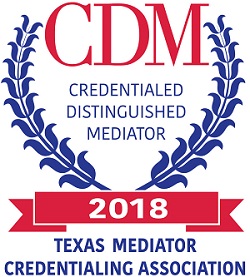
Resolution Through Arbitration
Isaacks Mediation & Arbitration Services in Denton County offers confidential, impartial, and experienced arbitration for any parties in the North Texas area seeking resolution to a civil, business, or family dispute without litigation. With years of experience as an arbitrator and a District Judge for the state of Texas, Judge Isaacks is fully qualified and able to oversee arbitration proceedings in lieu of courtroom litigation whenever the need arises.
Judge Isaacks, as an expert arbitrator well-steeped in the law, helps clients save time and money while also avoiding the public scrutiny common to litigation proceedings. Unlike mediation, arbitration is a more formal process where Judge Isaacks reviews both sides’ evidence as an impartial and legally qualified third party and renders an arbitration decision in favor of one side or the other.
The Different Types of Arbitration
Arbitration can proceed in two separate ways depending on the needs of the parties involved:
How Does The Denton Arbitration Process Work?
Once the process begins, Judge Isaacks, as arbitrator, will oversee the proceedings in much the same way a judge does in a court of law. All parties should prepare accordingly and ensure the appropriate witnesses and documents needed to strengthen their case are present. As with a courtroom trial, both sides take turns presenting their evidence to the arbitrator who then renders a sound and impartial decision after hearing the evidence and considering the relevant legal issues.
Because arbitration is not only faster and more flexible than a courtroom trial, but also less expensive and able to remain confidential, it remains a valuable tool to any parties seeking to resolve a civil, family, or business dispute.







